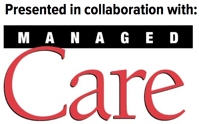To register, complete the form on this page.
Payer and Provider Perspectives on Genetic Testing:
Collaborating to manage utilization, quality, and cost
Tuesday February 14th
1:00-2:00pm ET
Advances in science and technology and the rise of personalized medicine are driving rapid growth in genetic testing. The number of genetic tests on the market has surpassed 65,000, yet clinical utility data is often sparse and inconclusive. Meanwhile, hospital sendout test volumes are growing, and spending for many health plans is rising 25% to 75% per year.
Payers and healthcare providers alike are seeking ways to manage this rapid change. Some of the most successful models are, in fact, collaborations between payers and providers, and these experiences hold unique insights.
In this special event from Managed Care magazine and NextGxDx, leaders from both the health plan and provider sides will share their unique experiences managing the cost, quality, utilization and reimbursement for genetic testing.

Panelists
Phillip P. Krebs R.EEG T., MHP
Director, Medical Policy and Clinical Guidelines
Geisinger Health Plan, Danville, Pa.
Shellie Kieke, PhD, MS, CGC
Laboratory Genetic Counselor
HealthPartners, Bloomington, Minn.
Michael Astion, MD, PhD
Medical Director, Department of Laboratories
Seattle Children's Hospital
Founder, Pediatric Laboratory Utilization Guidance Services (PLUGS)
Panelists will discuss:
- Why leading health plans and provider systems are choosing to focus on genetic testing
- Perspectives on assessing clinical utility, establishing medical policy — and ultimately, measuring value — when data is scarce
- Specific approaches to address key areas, such as whole exome sequencing, non-invasive prenatal testing (NIPT), pharmacogenetic testing, and tumor typing
- Models for collaborating with clinical genetics professionals, especially genetic counselors, as the demand for such professionals outpaces supply
- Practical lessons (and results) from implementing utilization management programs for complex diagnostic tests
Who should attend:
- Medical directors and other clinicians at health plans charged with assessing clinical utility and establishing medical payment policies
- Health plan contracting and operations professionals seeking to better understand genetic testing
- Health system leaders looking to better understand the practical implications of delivering, and seeking reimbursement for, personalized medicine
- Hospital laboratory leaders seeking to manage the cost and complexity of genetic sendout testing
